Most B2B marketers today use content marketing successfully to achieve top-of-the-funnel goals, such as brand awareness and audience education. But we aren’t delving deeper into the so-called funnel to build relationships with potential customers, according to a study we at MarketingProfs just released together with Content Marketing Institute.
The B2B Content Marketing 2020: Benchmarks, Budgets, and Trends—North America report, sponsored by our friends at Sitecore, does show a notable increase in the proportion of those who are successfully using content marketing to nurture subscribers, audiences, and leads (68% vs. 58% one year ago).
But B2B content marketers still have work to do on deepening relationships. Like building loyalty with current clients/customers. Like growing subscriber audiences.
Why? Because relationships are crucial to long-term content marketing success—as well as marketing and business generally. (We need #RelationshipGoals, in other words.)
Not surprisingly, B2B marketers who characterize their organizations as extremely or very successful at content marketing are far more likely to achieve those sorts of relationship goals with their content efforts than all surveyed B2B marketers overall.
That important task tends to fall on a few content marketers, our study found. Small content marketing teams are the norm, and it’s rare to find internal content marketing teams of more than five full-time employees.
Which explains why half of those surveyed outsource at least one content marketing activity. And the content activity most likely to be outsourced is content creation (84% of respondents say so).
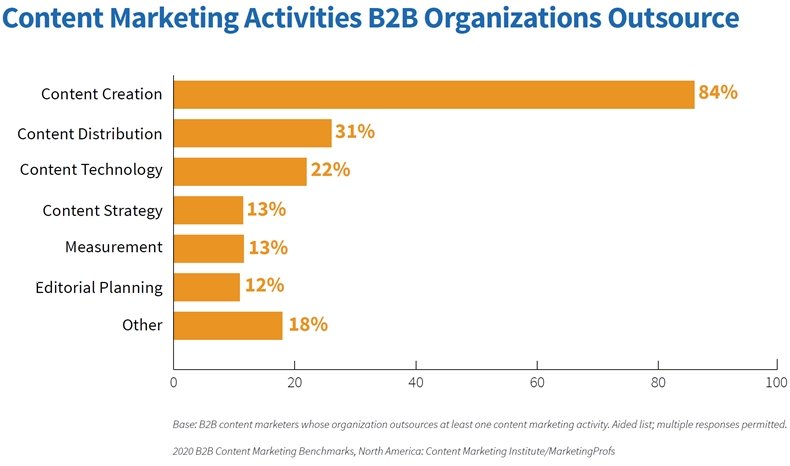
Let’s look at some more numbers. These are just a few selected stats from B2B Content Marketing 2020: Benchmarks, Budgets and Trends—North America:
- 71% of respondents agree their organization prioritizes delivering relevant content when and where a person is most likely to see it.
- 84% use paid distribution channels for content marketing purposes.
- Most use metrics to measure content performance, but fewer have KPIs or measure content marketing ROI.
- Among the content types used, in-person events are the highest-performing for securing leads and for converting leads.
- 83% of top-performer responders agree their organization provides optimal experiences across all phases of the customer journey compared with just half (52%) of all respondents. (Top performers those who characterize their organization’s overall content marketing approach as extremely or very successful.)
And here are some additional highlights and charts from this year’s B2B content marketing report.
Content Marketing Success
Overall ratings of content-marketing success is similar to levels reported in the past three years: A plurality of respondents say their organization is moderately successful.
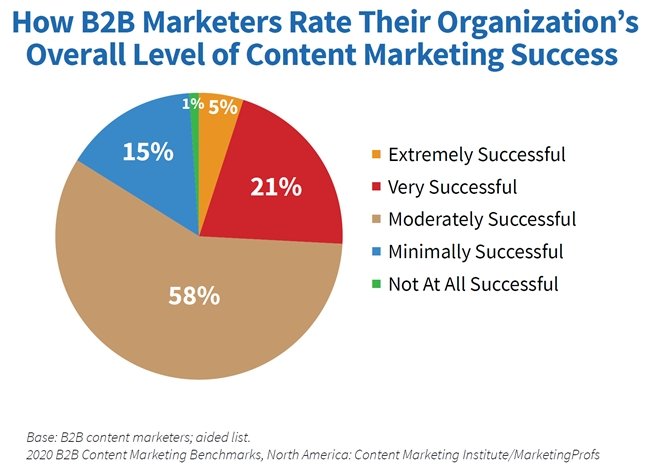
Content Strategy
The percentage of content marketers who document their content marketing strategy has inched up over the years. Our annual research has consistently found that a documented strategy is an indicator of content marketing success.
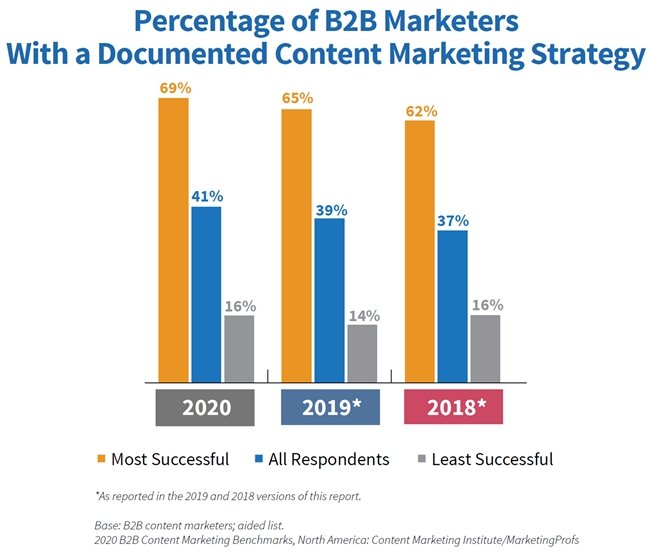
Content Team Size
35% of B2B marketers say their organization has 2-5 internal team members who are fulltime/dedicated to content marketing; another 32% have no full-time person:
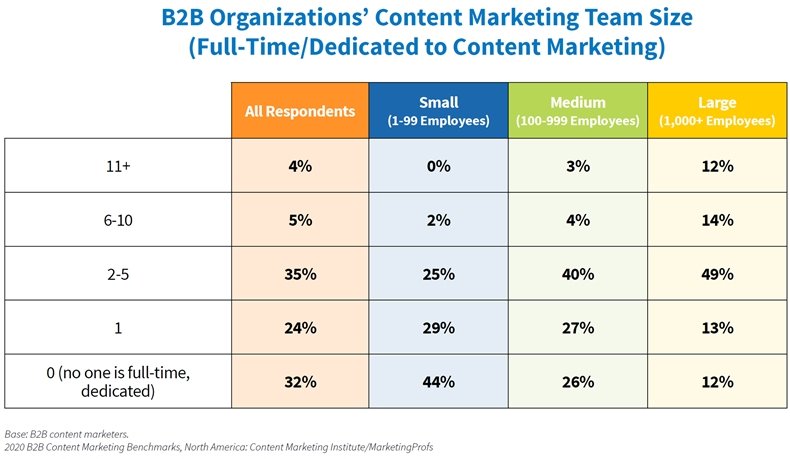
Content Creation & Performance
B2B marketers in organizations of all sizes tend to say half the content they produce is created for audiences in the early stages of the customer journey:
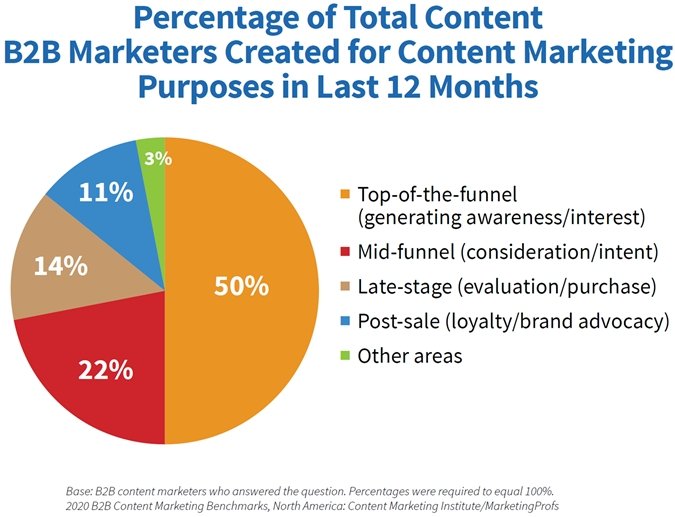
We asked respondents which content types perform best for their organization in building brand awareness, securing leads, nurturing leads, and converting leads. These are the top 3 responses in each of those categories:
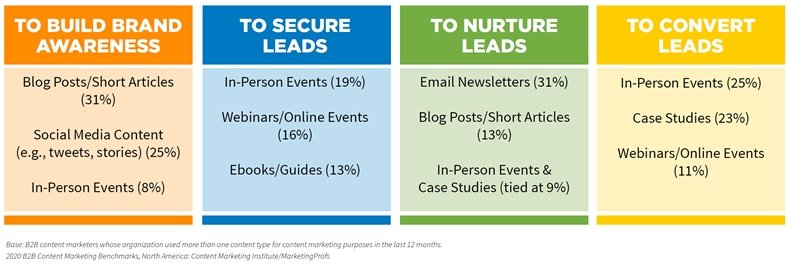
Content Marketing Metrics & Goals
Among the top metrics B2B marketers track to measure content performance are email engagement (90%), website traffic (88%), website engagement (86%), social media analytics (83%), and conversions (78%):
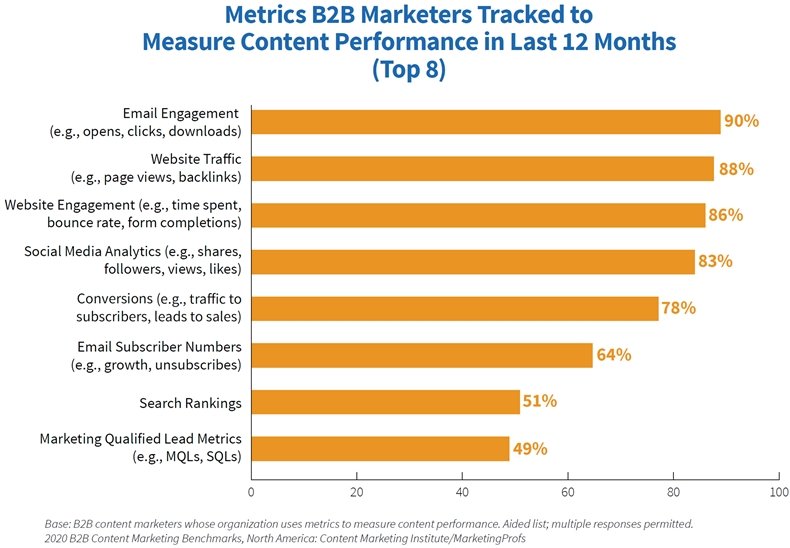
Content Marketing Budgets & Spending
Some 36% of B2B marketers reported a 2019 annual content marketing budget of less than $100,000. The average reported annual budget (all respondents) was $185,000:
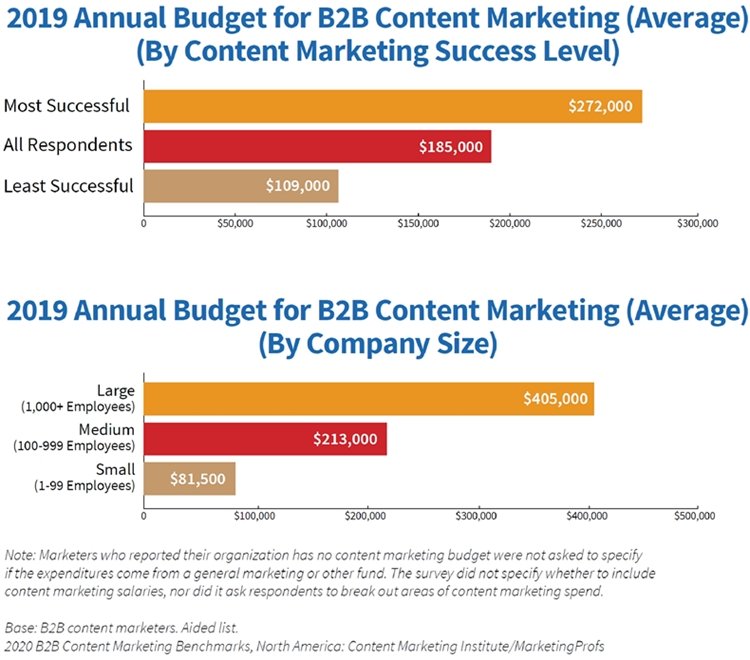
Check Out the Full Report
